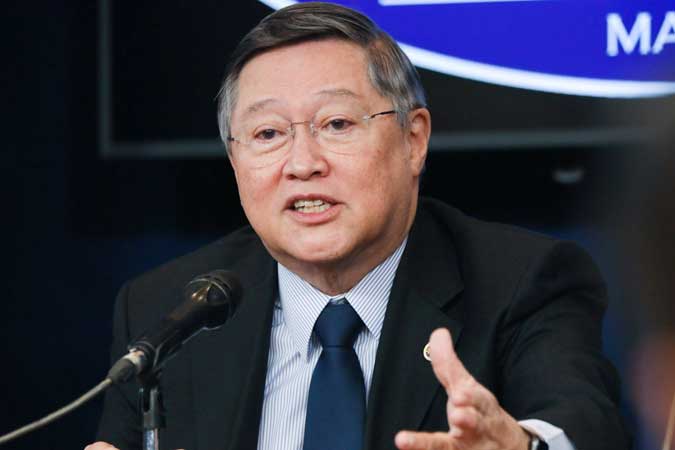Gov’t can pay its foreign debts, Finance chief says

By Beatrice M. Laforga, Reporter
FINANCE SECRETARY Carlos G. Dominguez III on Wednesday said the government has ample reserves and maintains a strong fiscal position to service all of its foreign borrowings over the long term, amid concerns over the country’s growing debt.
In a statement, Mr. Dominguez said the country’s outstanding external debt only accounted for 25.2% of its gross national income (GNI), indicating that the government is in “a strong position to service foreign borrowings in the medium- to long-term.”
Latest Treasury data showed the country’s debt stock hit P10.77 trillion as of March, up 27% year on year. Of which, 72% or P7.745 trillion were local borrowings and the remaining P3.03 trillion were foreign debt.
The Finance department said foreign currency needed to settle maturing debt remained manageable, citing the weighted average maturity for all medium- to long-term accounts at 16.6 years, with public sector debt having a longer average term of 20.4 years than the private sector’s 7.3 years.
“External repayments can be easily met, given the sustained healthy level of GIR (gross international reserves) at 15.6 times the country’s debt service burden in 2020,” Mr. Dominguez said.
GIR grew to a fresh record high of $109.8 billion at the end of 2020, according to central bank data. As of March, GIR stood at $105.16 billion, 4.2% lower from the end-2020 level but 18% higher year on year.
“This sound and prudent management of the country’s GIR ensures that the government can service its external debt obligations and absorb shocks during any crisis,” the DoF chief said.
This strategy also helps boost investors’ confidence that the country can service its foreign debt, Mr. Dominguez said, citing the unchanged credit rating of the Philippines last year despite the crisis.
Major debt watchers Fitch Ratings, Moody’s Investors Service and S&P Global Ratings kept the Philippines’ credit ratings unchanged at “BBB,” “Baa2,” and “BBB+” ratings, respectively, last year.
“These credit rating upgrades and affirmations are a testament of the administration’s solid reforms and prudent public financial management amidst the pandemic,” Mr. Dominguez said.
Economic managers were resolute in maintaining fiscal prudence in the last few years, even throughout the pandemic-induced economic recession.
The Finance chief said such a move helped pull down the country’s borrowing costs, with total debt interest payment accounting for just 9% of total expenditures in 2020 against the 13.9% share in 2015. As a percentage of total revenues, the ratio of interest payments also inched down to 13.3% last year from 14.7% in 2015.
Foreign debt was key to funding public programs such as infrastructure projects, which create jobs and drive growth. Unplanned spending for the government’s pandemic response last year have also been largely supported by offshore borrowings, Mr. Dominguez said.
As of April, the government has obtained $18.4 billion in foreign loans to finance its pandemic response, such as testing subsidies, contact tracing efforts, mass vaccination rollout and healthcare system upgrades.
For Security Bank Corp. Chief Economist Robert Dan J. Roces, the strategy of fiscal prudence has its own advantages such as keeping credit rating intact, leaving enough space for post-pandemic borrowings and maintaining cheap borrowing costs.
However, Mr. Roces noted that an expansionary fiscal policy is still needed to complement the monetary stimulus and help the economy recover faster from the pandemic.
“With this foresight should also be the need to ensure that enough fiscal support is made to the economy to nudge a recovery,” he said in a Viber message.



